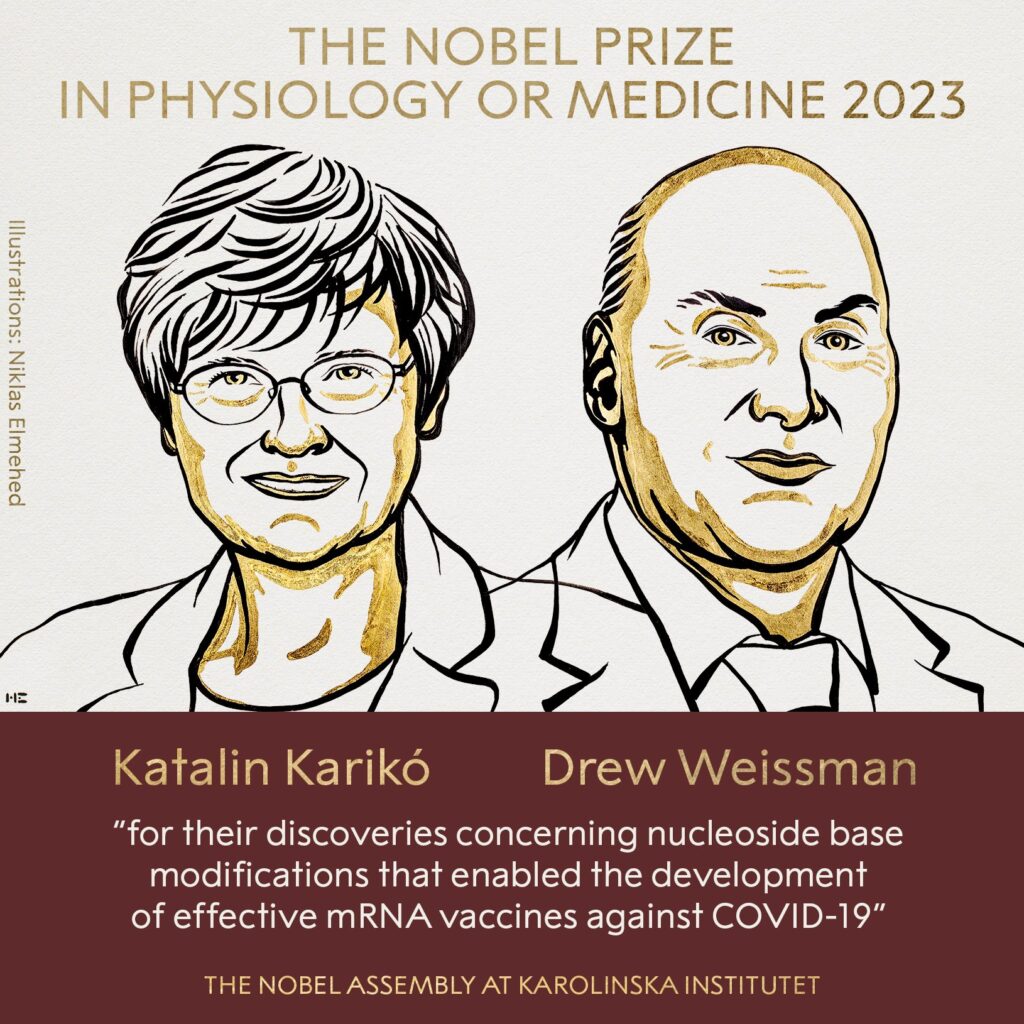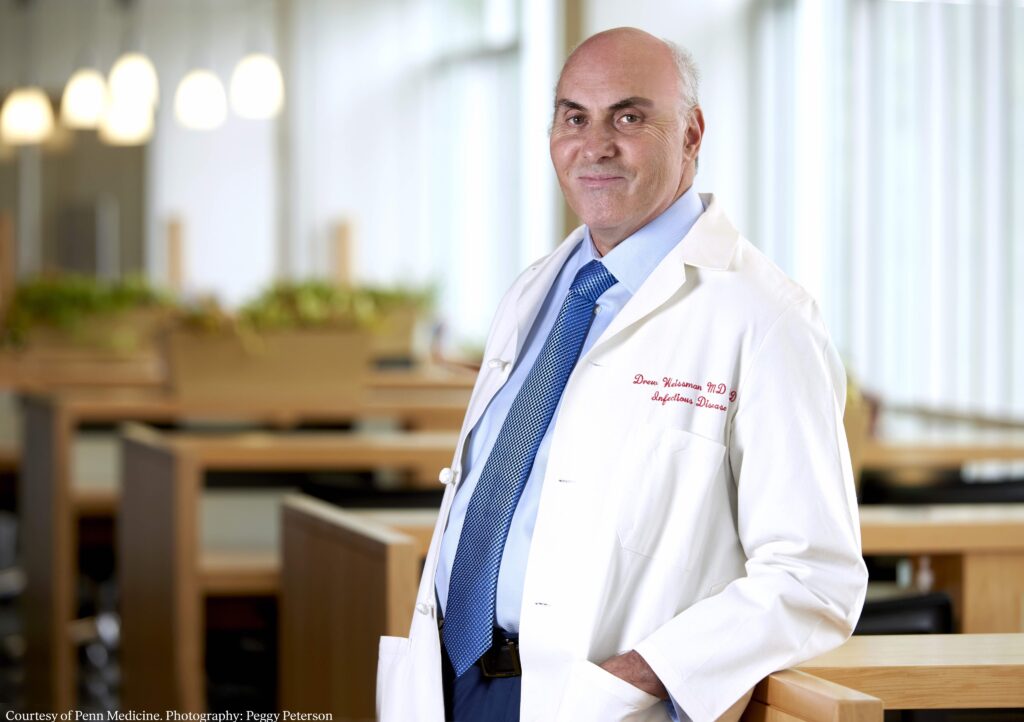When COVID-19 emerged, the world was desperate for a vaccine. Luckily, scientists had been quietly working on new mRNA technology for decades that allowed vaccines to be developed with unprecedented speed. This week, the Nobel Committee recognized the scientists behind this groundbreaking work.
The 2022 Nobel Prize in Physiology or Medicine has been awarded to biochemist Katalin Karikó and immunologist Drew Weissman for their discoveries enabling mRNA vaccines. You know, like the Pfizer and Moderna COVID shots that have gone into billions of arms worldwide.
Karikó and Weissman spent years trying to figure out how to deliver mRNA into cells without the immune system breaking it down. This led to a breakthrough discovery – swapping out one ingredient in mRNA stopped the unwanted immune reaction.


This opened the door for using mRNA to fight disease. When COVID hit, companies like BioNTech and Moderna used Karikó and Weissman’s technology to develop safe, highly effective vaccines in record time. Over 90% of Americans have gotten an mRNA shot.
Karikó’s story is especially inspiring. She grew up in communist Hungary and moved to the U.S. as a postdoc in 1985. She struggled for years to get funding and recognition for her work on mRNA. Now her perseverance has paid off with a Nobel Prize.
At a time when some question the value of science, this prize reminds us how important basic research can be. Funding unsung scientists like Karikó and Weissman eventually led to a whole new class of vaccines that have saved millions of lives. Discoveries like this take time and can’t be rushed.
So the next time you get your annual COVID booster, think of the scientists who spent decades meticulously unlocking the secrets of mRNA. Their work is proof that groundbreaking innovations often start with basic research – we just don’t know it yet. Karikó and Weissman truly deserve this honor.


